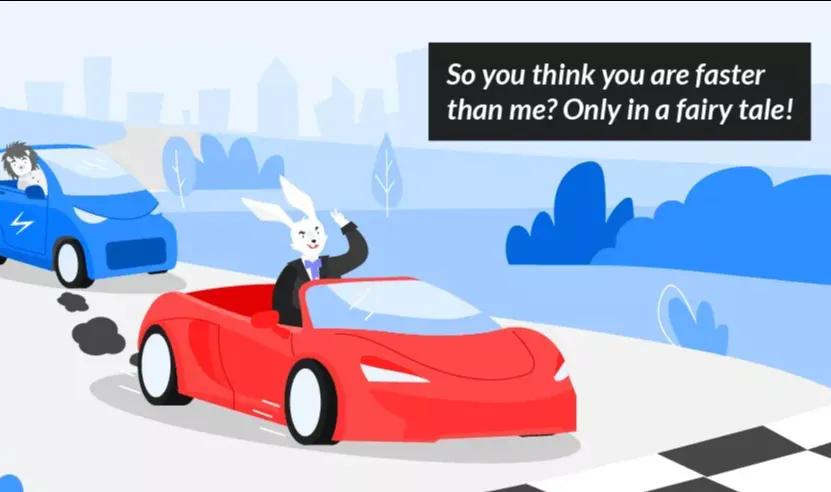As an experienced expert in the field of intelligent charging and energy solutions, The Mobility House has set itself the goal of taking a closer look at widespread fairy tales surrounding e-mobility and questioning them. Fairy tale number four takes a closer look at the driving experience of electric vehicles.
Once upon a time…a fun-free driving experience
Anyone who has driven an electric car knows this feeling: that tingling in the stomach from the G-forces and the resulting smiling grimace on the face, as soon as you completely press down the power pedal to test the performance potential of the vehicle. Some people feel reminded of a roller coaster, of the moment as it drops down from the highest point. But how is it, that even compact and mid-range electric cars accelerate like a sports car?
The power lies in the torque
Electric motors have an almost unlimited torque. This means that the torque is fully available immediately from the first turn of the engine and not only in certain speed ranges. This is why electric cars offer acceleration values from a standstill that are otherwise only known from sports cars. Up to 60 km/h the BMW i3s, for example, is even equal to its brand brother M3, which has more than twice as much horsepower under its hood. Electric cars also have a small performance bonus in terms of elasticity, such as when accelerating from 60 to 100 km/h – which makes overtaking faster and safer.
In addition, since electric cars have no classic transmission and only one gear, there is no need to let the clutch slip and shift gears several times as you have to do with conventional engines. This enables a driving comfort that surpasses that of vehicles with state-of-the-art automatic transmissions while covering the entire speed range.
Fun and comfort as the best sales pitch
According to a study by the management consulting firm McKinsey, the incomparable driving behavior including the great fun and comfort factor is even the main added value of an electric vehicle for 33 percent of the interviewees. Incentives such as purchase premiums, tax benefits and free parking (25 percent), lower operating costs (22 percent) and environmental protection (15 percent) are further plus points according to the survey.
